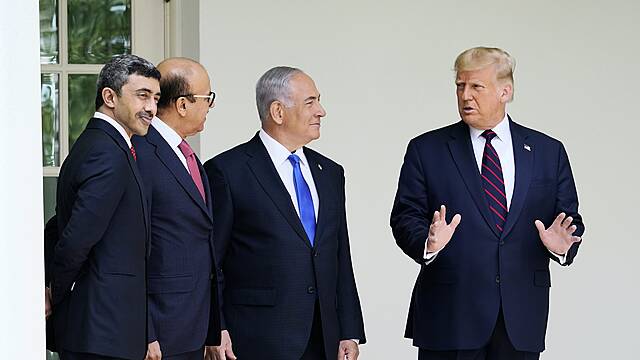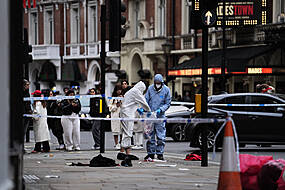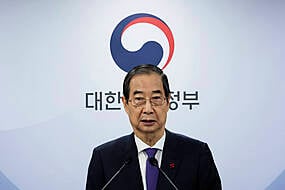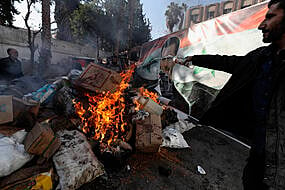Hundreds of people amassed on the sun-washed South Lawn to witness the signing of agreements between Israel and the United Arab Emirates and Bahrain.
The bilateral agreements formalise the normalisation of the Jewish state’s already thawing relations with the two Arab nations in line with their common opposition to Iran and its aggression in the region.
"We're here this afternoon to change the course of history.
After decades of division and conflict, we mark the dawn of a new Middle East." pic.twitter.com/DDe3Y9EwDM— The White House 45 Archived (@WhiteHouse45) September 15, 2020
“We’re here this afternoon to change the course of history,” President Trump said from a balcony overlooking the South Lawn.
“After decades of division and conflict, we mark the dawn of a new Middle East.”
The agreements do not address the decades-long Israeli-Palestinian conflict. While the UAE, Bahrain and other Arab countries support the Palestinians, the Trump administration has persuaded the two countries not to let that conflict keep them from having normal relations with Israel.
President Trump’s political backers are looking for the agreements to boost his standing as a statesman with just seven weeks to go before Election Day.
Until now, foreign policy has not had a major role in a campaign dominated by the coronavirus, racial issues and the economy. The pandemic was in the backdrop of the White House ceremony, where there was no social distancing and most guests did not wear masks.
The agreements will not end active wars, but supporters believe they could pave the way for a broader Arab-Israeli rapprochement after decades of enmity and only two previous peace deals.
Sceptics, including many longtime Middle East analysts and former officials, have expressed doubts about their impact and lamented that they ignore the Palestinians, who have rejected them as a stab in the back by fellow Arabs.
Today is a HISTORIC day at the White House!
President @realDonaldTrump welcomes the Prime Minister of Israel and the Foreign Ministers of Bahrain and the United Arab Emirates for the signing of the Abraham Accords!
🇮🇱 🇦🇪 🇧🇭 pic.twitter.com/l5O0mCk398— The White House 45 Archived (@WhiteHouse45) September 15, 2020
Israeli Prime Minister Benjamin Netanyahu has insisted that Israel has only suspended its plans to annex West Bank settlements.
Yet even the harshest critics have allowed that the agreements could usher in a major shift in the region should other Arab nations, particularly Saudi Arabia, follow suit, with implications for Iran, Syria and Lebanon.
Other Arab countries believed to be close to recognising Israel include Oman, Sudan and Morocco.
“We are very down the road with about five different countries,” President Trump told reporters before the ceremony.
In addition to the bilateral agreements signed by Israel, the UAE and Bahrain, all three are signing a document dubbed the “Abraham Accords” after the patriarch of the world’s three major monotheistic religions.
The Palestinians have not embraced the US vision. Palestinian activists held small demonstrations on Tuesday in the West Bank and in Gaza, where they trampled and set fire to pictures of President Trump, Mr Netanyahu and the leaders of the UAE and Bahrain.
A poll released on Tuesday found that 86% of Palestinians believe the normalisation agreement with the UAE serves only Israel’s interests and not their own.
The poll, carried out by the Palestinian Centre for Policy and Survey Research, was carried out between September 9-12 and surveyed 1,270 Palestinians in the occupied West Bank and Gaza.
Even in Israel, where the accords have received widespread acclaim, there is concern they might result in US sales of sophisticated weaponry to the UAE and Bahrain, thus potentially upsetting Israel’s military edge in the region.







